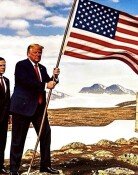Diesel Prices Bring Demand for Tax Cut
Diesel Prices Bring Demand for Tax Cut
Posted May. 26, 2008 07:52,
A survey found that the prices of diesel increased 10 times over the past 18 years, while consumer prices doubled over the same period. Considering that domestic gasoline prices rose five times in the same period, diesel prices soared far more steeply than gasoline prices.
Amid the increasing financial burden due to the hike in diesel prices, more people are arguing that the government should cut the tax on diesel. But the government says that it cannot tackle a price hike in the market with a tax cut.
According to the Ministry of Strategy and Finance, the National Statistical Office and Korea National Oil Corp., the consumer price index for diesel jumped about nine times, or 803 percent, to 149.0 in April this year from 16.5 in 1990 (on the assumption that the index in 2005 is 100). The index for gasoline rose about 4.5 times, or 348.5 percent, to 118.4 in April from 26.4 in 1990.
In contrast, the general consumer price index calculated by the National Statistical Office rose just 2.1 times from 51.7 percent to 110.4 percent over the same period.
In particular, as consumer prices of diesel and gasoline each jumped about 10 percent in May, it is estimated that their prices have soared five and 10 times, respectively, compared to 1990.
As diesel prices have become higher than gasoline prices in some provinces, demand for a tax cut on diesel is ever intensifying. Diesel is mainly used for industrial purposes by corporations and for business purposes by the self-employed.
Through the two rounds of energy taxation reform, the government has raised diesel prices until last July to maintain the price ratio of gasoline to diesel at 100 to 85. However, diesel users complaints kept growing, as the rising global diesel prices caught up on gasoline prices.
In regards to this, the Korea Cargo Transport Workers Union announced that it would take strong action, including a strike, if the government fails to come up with effective countermeasures by June 10.
Also, a civic group against inflated prices of five major items launched its signature drive for oil price cut, followed by other similar efforts to slash diesel prices in online communities.
However, the Finance Ministry is maintaining its position that it cannot acknowledge such pressures.
A ministry official said, A tax cut has its limitations as a tool for dealing with the consumer price hike caused by fluctuations in international oil prices. Also, as a tax cut could encourage diesel consumption, it is not an option.
higgledy@donga.com





![[이진영 칼럼]잘난 韓, 못난 尹, 이상한 張](https://dimg.donga.com/c/138/175/90/1/wps/NEWS/IMAGE/2026/01/20/133198367.1.jpg)

